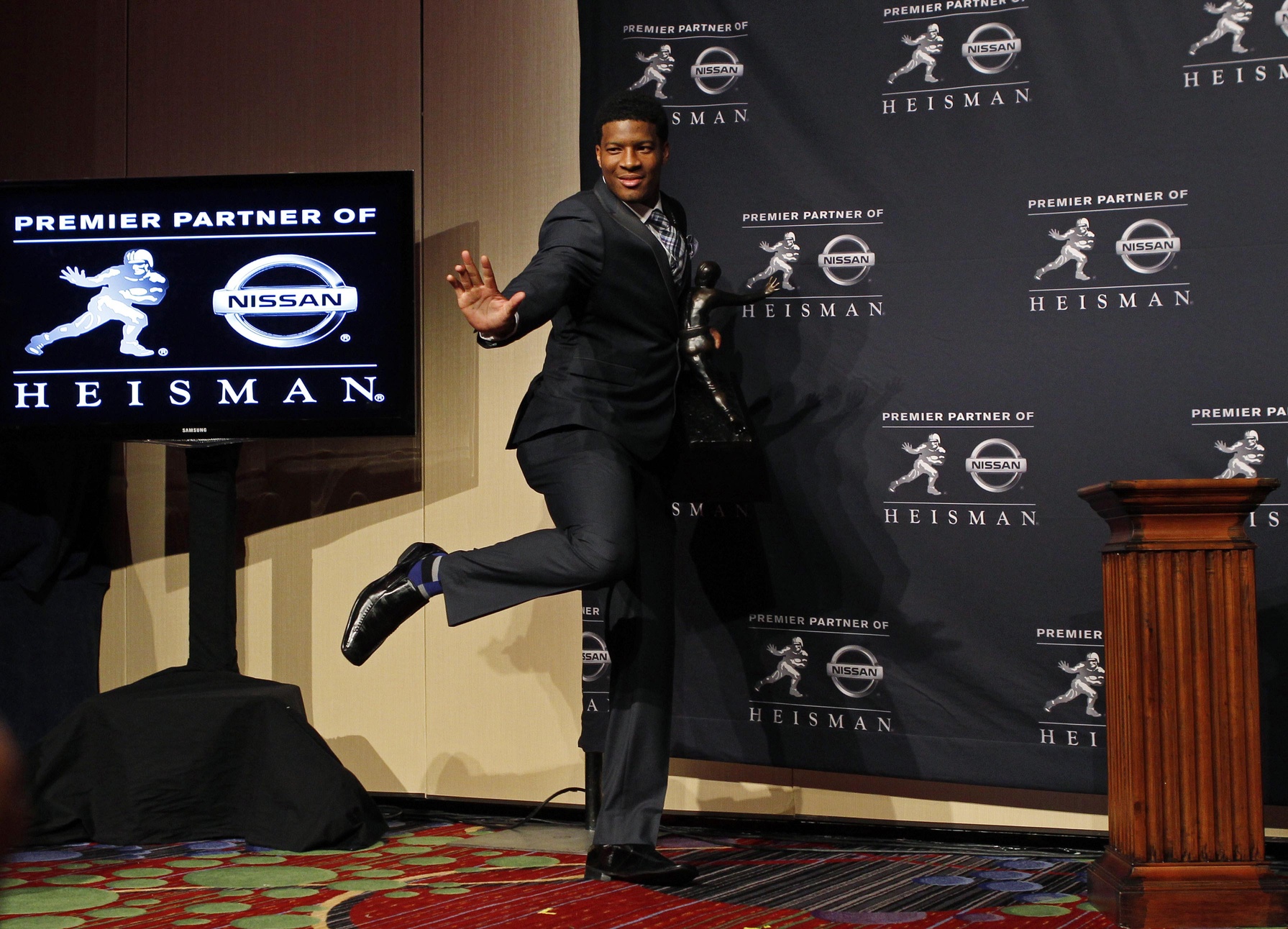In 2002, Kari Chisholm founded the website Stiff Arm Trophy, devoted to analysis and predictions of the Heisman Trophy race. For the next 12 college football seasons, Chisholm correctly predicted the winner of the Heisman.
In 2014, everyone knows that Marcus Mariota of Oregon will win the prestigious trophy, but Chisholm won’t officially make that call as the proprietor and founder of his popular and accurate website.
That’s because he’s shutting down operations with his 1.000 batting average.
Chisholm filed his final post at StiffArmTrophy.com on Monday, informing readers of his decision to close up shop. He also made the announcement on Twitter:
It's true, folks. Stiff Arm Trophy is no more. Here's why: http://t.co/slkyewiDBW
— StiffArmTrophy.com (@stiffarmtrophy) December 9, 2014
There’s not a lot of complexity to the decision, and that’s the sad part of it all.
*
First, the background:
Chisholm went 12-for-12 in predicting the Heisman winner not because he possessed magical pundit powers. He was accurate because he did legwork and received enough feedback from voters to inform his analysis. Stiff Arm Trophy became a success story because of hard work, not because of a clever maneuver or a happy accident of timing.
To be even more precise about the matter, Chisholm’s work was connected to a process of transparency, in which voters trusted him enough to disclose their votes. This fundamental reality of widespread disclosure is what gave Chisholm the numbers needed to make the right call, and to be aware enough to know how close the Heisman voting would be in a given season.
Transparency — as Chisholm said in his farewell post — enabled readers to realize not only who won (though that was certainly at the core of the whole endeavor), but how and why the voting was close. This last detail matters because this ethos of disclosure and sharing painted a fuller picture of what was going on in the national voting, from region to region. By being able to tell readers that a vote was close, Chisholm was able to not only build interest in a given year’s Heisman ceremony; he was able to tell readers that a vote was going to be tight, thereby injecting a substantial degree of drama into the proceedings.
Transparency did not remove drama from the Heisman Trophy announcement. It enhanced it when the voting was appreciably close.
This is why it’s so exasperating to contemplate the reality that Stiff Arm Trophy will no longer exist. This lauded website is dead because — according to Chisholm — the Heisman Trust has clamped down on this practice of disclosure by threatening to revoke ballots from writers who reveal their votes before the ceremony.
Just to make sure this is not his isolated opinion, Chisholm lent context to this new and unpleasant reality in his post. He cited the fact that prominent college football writers, such as Dennis Dodd and Tony Barnhart of CBS Sports, have withdrawn from the Heisman voting process in response to the Heisman Trust’s threat.
*
The postscript to this not-very-complicated but profoundly disappointing story is that college football continues to be dogged by secrecy in processes central to the sport’s workings.
In the final years of the Bowl Championship Series era, Coaches’ Poll votes were not made public until after the final vote, meaning that no Coaches’ Poll votes were made public before a subsequent regular-season Saturday. In this way, coaches could never receive scrutiny prior to a vote. They were able to get away with a season-concluding vote that was not subject to revision or the public pressure which might have brought about said revision. This bread crumb of transparency lent very little new sunlight to the Coaches’ Poll voting process.
In year one of the College Football Playoff, the Coaches’ Poll blessedly ceased to matter – that’s the good news. However, the votes of the 12 people on the College Football Playoff Selection Committee were kept secret the whole way through. For all the minor degrees of transparency brought into the committee’s process by means of having weekly rankings shows, the lack of a publicly disclosed final vote places a great limit on the overall proceedings.
The more it becomes apparent how much college football needs transparency in so many realms of activity, the more the sport – from the Heisman Trust to the playoff committee – continues to push back.
Some people might say that the mysterious messiness of college football is a feature of the sport, one of its longstanding charms.
For the sports fan who wants to understand more and guess less, this is not a feature at all. It’s a bug that just won’t go away.
